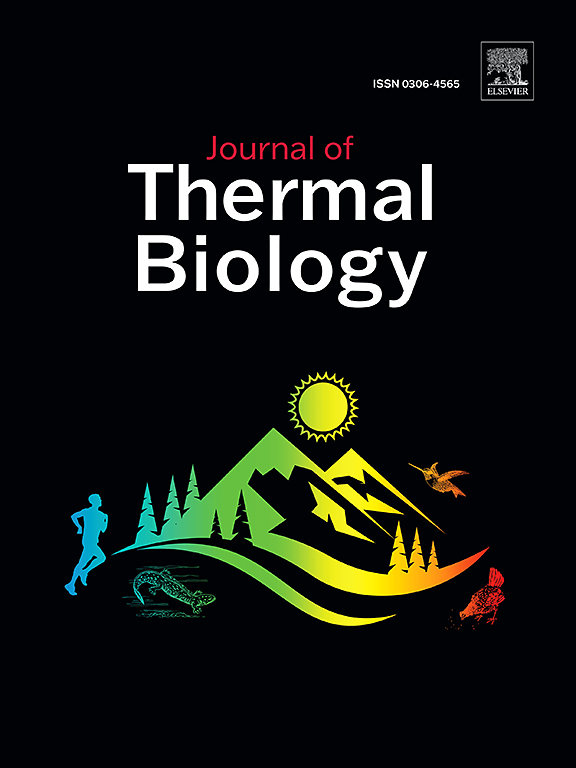Susceptibility of acute sleep deprivation to cerebral cortex depolarization assisted by conductive nanoparticles based on medical thermography
IF 2.9
2区 生物学
Q2 BIOLOGY
引用次数: 0
Abstract
Acute sleep deprivation (SD) has significant effects on the cognitive function and behavioral performance of organisms. In recent years, medical thermal imagery has shown potential in monitoring physiological changes, especially in the study of electrical activity in the cerebral cortex. The purpose of this study was to investigate the application of conductive nanoparticle-assisted medical thermal imaging technology in assessing the sensitivity of acute sleep deprivation to cerebral cortex depolarization. Adult SD rats were selected as experimental animals and grouped according to specific criteria. Acute sleep deprivation model was established and cortical depolarization was recorded by electrophysiological methods. Electroencephalography (EEG) and electromyography (EMG) data obtained by thermal imaging techniques showed that acute sleep deprivation significantly altered the depolarization pattern of the cerebral cortex in rats. The rats in the acute sleep deprivation group showed significant weight loss and anxiety-like behavior, and the behavioral results supported the physiological data findings. The study shows that medical thermal images combined with conductive nanoparticles can effectively assess the effects of acute sleep deprivation on cerebral cortical depolarization, providing a new way to study the effects of sleep disorders on neurophysiological function.
基于医学热成像的导电纳米颗粒辅助下急性睡眠剥夺对大脑皮层去极化的敏感性
急性睡眠剥夺对机体的认知功能和行为表现有显著影响。近年来,医学热成像在监测生理变化方面显示出潜力,特别是在研究大脑皮层的电活动方面。本研究的目的是研究导电纳米颗粒辅助医学热成像技术在评估急性睡眠剥夺对大脑皮层去极化的敏感性方面的应用。选取成年SD大鼠作为实验动物,按特定标准分组。建立急性睡眠剥夺模型,电生理方法记录皮质去极化。利用热成像技术获得的脑电图(EEG)和肌电图(EMG)数据显示,急性睡眠剥夺显著改变了大鼠大脑皮层的去极化模式。急性睡眠剥夺组大鼠表现出明显的体重减轻和焦虑样行为,行为结果支持生理学数据发现。研究表明,医学热成像结合导电纳米颗粒可以有效评估急性睡眠剥夺对大脑皮层去极化的影响,为研究睡眠障碍对神经生理功能的影响提供了新的途径。
本文章由计算机程序翻译,如有差异,请以英文原文为准。
求助全文
约1分钟内获得全文
求助全文
来源期刊

Journal of thermal biology
生物-动物学
CiteScore
5.30
自引率
7.40%
发文量
196
审稿时长
14.5 weeks
期刊介绍:
The Journal of Thermal Biology publishes articles that advance our knowledge on the ways and mechanisms through which temperature affects man and animals. This includes studies of their responses to these effects and on the ecological consequences. Directly relevant to this theme are:
• The mechanisms of thermal limitation, heat and cold injury, and the resistance of organisms to extremes of temperature
• The mechanisms involved in acclimation, acclimatization and evolutionary adaptation to temperature
• Mechanisms underlying the patterns of hibernation, torpor, dormancy, aestivation and diapause
• Effects of temperature on reproduction and development, growth, ageing and life-span
• Studies on modelling heat transfer between organisms and their environment
• The contributions of temperature to effects of climate change on animal species and man
• Studies of conservation biology and physiology related to temperature
• Behavioural and physiological regulation of body temperature including its pathophysiology and fever
• Medical applications of hypo- and hyperthermia
Article types:
• Original articles
• Review articles
 求助内容:
求助内容: 应助结果提醒方式:
应助结果提醒方式:


